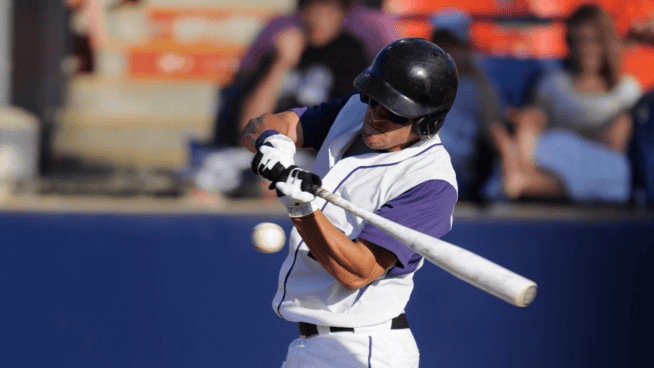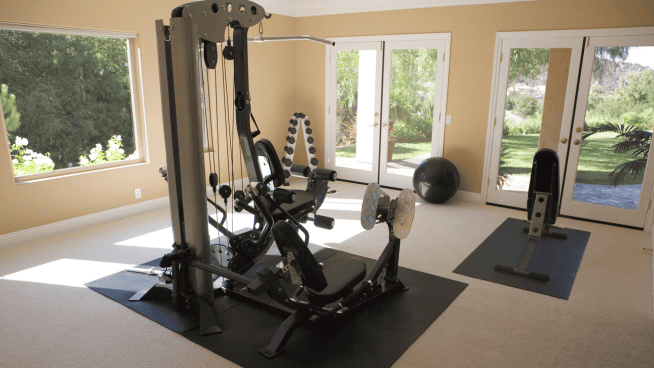Sports tryouts can cause kids to be nervous or not perform their best. If your child doesn’t make the team or is not chosen to play the first string, they may feel not good enough or rejected. It can be disheartening not to make the squad or team.
5 Tips To Help Your Athlete Stay Motivated And Confident
1) Validate Their Feelings
Rather than telling them what went wrong, ask them to validate and explain what happened. You need to understand what went wrong and how to help them fix the issue for the next tryout. Ask questions like; Do you feel you performed your best? Why do you think you did not do well? What was difficult and challenging? Did you have fun? You can better understand, as a parent, whether it was a mental, physical or emotional aspect by asking questions. This way, you can offer the best advice and help improve their mental focus, movement skills, or maybe how to remain calm. Teach your kids how to be better, and they will turn out to be the best! This will teach them to be responsible for developing their success and curiosity to learn how to be better.
2) Don’t Downplay It
It is ok to let them feel upset and disappointed. It will help with life. However, if you understand why they did not perform well and not sugar coat it, you can turn that frown upside down. Get them the proper training and help they need according to the weaknesses they validate to you. Provide training according to the weakness associated with their disappointment. It will help them feel better and maintain confidence and motivation. They won’t be afraid to recognize their faults and understand how to play better. If you downplay it, you will just feed a false sense of security.
3) Talk To The Coach
Talking to the coach can help. You and your child can get honest feedback about their performance and where they need to improve. Sometimes many players are equally good. Sometimes everyone is great, however, with different strengths and weaknesses. It can simply be all about timing; what the coach’s strategy, and what pertains to his playbook. This can cause him to not choose and overlook a very skilled player.
Possibly, your child would like to try out again next year. Therefore, it would be great to get advice from the coach. Once you understand the reason, it helps to explain it to your child. Just be open-minded with the coach’s criticism and critique.
4) Be Positive And Encourage
Competition is challenging so give your kids praise. Say to them, “You did your best. I am proud of you. As long as you had fun, that’s all that matters.” If you are positive with them, you will encourage them, and this will produce enthusiasm. Or, maybe, this could be a good time to introduce and see if they want to try another sport.
5) Don’t Give Up!
Let them know that many famous athletes were cut in high school, college, or even underrated to make the team. Here are some examples you can use. Or, if you know your child’s favorite professional athlete, look up their history, and maybe there is a similar story you can use.
5 Professional Athletes Who Got Cut From The Team
Wes Welker: New England Patriots
Wes started playing soccer and wanted to transition into football in high school. To make a long story short, he defied all odds, being labeled slow and small, and still made it into the NFL. Wes played at Texas Tech in 2004. He tried out for the San Diego Chargers and made the team. He was cut after the preseason because of the availability of another player. Thanks to the Patriots, they said Wes’s playing skills fit into the coach’s playbook and strategy. Wes was a repeat Super Bowl champion and five-time Pro Bowl player. Wes was not known for his superior football skills and was overlooked because of his size. He was known for his hard work ethic and confidence.
Tom Brady: New England Patriots
In high school, Tom played football and baseball. He was drafted in 1995 by the Montreal Expos baseball team. But he turned down the offer and decided to go to college and attended the University of Michigan to play football, not baseball. Tom did not start as the quarterback until his junior year and won the 1999 Orange Bowl. Even with this great victory, he was still criticized as lacking the skills to be a great quarterback. In 2000, he was chosen in the sixth round, the 199th pick by the New England Patriots, as a backup quarterback. However, due to the injury of the starting quarterback in the second game of the season, Brady was in. Need I say more after that. It is interesting how two underrated players went on to win many repeat Super Bowl victories.
Lionel Messi: Club Barcelona
He is one of the top soccer players in the world. He was cut from his junior team because of his height.
Michael Jordan: Chicago Bulls
Michael Jordan did not make his high school basketball team. He was told his basketball skills were average and that he was too short to play on the varsity team. He spent the entire season on JV. Then Jordan made the varsity team his junior year of high school and then went on to play at the University of North Carolina and history wrote itself becoming one of the greatest basketball players.
From these examples, you can see that what is considered good performance and skill is in the eye of the beholder, the coach. Learning what happened during the tryout is the best way to improve your child’s skills, mentally or physically.
RECOMMENDED FOR YOU
Sports tryouts can cause kids to be nervous or not perform their best. If your child doesn’t make the team or is not chosen to play the first string, they may feel not good enough or rejected. It can be disheartening not to make the squad or team.
5 Tips To Help Your Athlete Stay Motivated And Confident
1) Validate Their Feelings
Rather than telling them what went wrong, ask them to validate and explain what happened. You need to understand what went wrong and how to help them fix the issue for the next tryout. Ask questions like; Do you feel you performed your best? Why do you think you did not do well? What was difficult and challenging? Did you have fun? You can better understand, as a parent, whether it was a mental, physical or emotional aspect by asking questions. This way, you can offer the best advice and help improve their mental focus, movement skills, or maybe how to remain calm. Teach your kids how to be better, and they will turn out to be the best! This will teach them to be responsible for developing their success and curiosity to learn how to be better.
2) Don’t Downplay It
It is ok to let them feel upset and disappointed. It will help with life. However, if you understand why they did not perform well and not sugar coat it, you can turn that frown upside down. Get them the proper training and help they need according to the weaknesses they validate to you. Provide training according to the weakness associated with their disappointment. It will help them feel better and maintain confidence and motivation. They won’t be afraid to recognize their faults and understand how to play better. If you downplay it, you will just feed a false sense of security.
3) Talk To The Coach
Talking to the coach can help. You and your child can get honest feedback about their performance and where they need to improve. Sometimes many players are equally good. Sometimes everyone is great, however, with different strengths and weaknesses. It can simply be all about timing; what the coach’s strategy, and what pertains to his playbook. This can cause him to not choose and overlook a very skilled player.
Possibly, your child would like to try out again next year. Therefore, it would be great to get advice from the coach. Once you understand the reason, it helps to explain it to your child. Just be open-minded with the coach’s criticism and critique.
4) Be Positive And Encourage
Competition is challenging so give your kids praise. Say to them, “You did your best. I am proud of you. As long as you had fun, that’s all that matters.” If you are positive with them, you will encourage them, and this will produce enthusiasm. Or, maybe, this could be a good time to introduce and see if they want to try another sport.
5) Don’t Give Up!
Let them know that many famous athletes were cut in high school, college, or even underrated to make the team. Here are some examples you can use. Or, if you know your child’s favorite professional athlete, look up their history, and maybe there is a similar story you can use.
5 Professional Athletes Who Got Cut From The Team
Wes Welker: New England Patriots
Wes started playing soccer and wanted to transition into football in high school. To make a long story short, he defied all odds, being labeled slow and small, and still made it into the NFL. Wes played at Texas Tech in 2004. He tried out for the San Diego Chargers and made the team. He was cut after the preseason because of the availability of another player. Thanks to the Patriots, they said Wes’s playing skills fit into the coach’s playbook and strategy. Wes was a repeat Super Bowl champion and five-time Pro Bowl player. Wes was not known for his superior football skills and was overlooked because of his size. He was known for his hard work ethic and confidence.
Tom Brady: New England Patriots
In high school, Tom played football and baseball. He was drafted in 1995 by the Montreal Expos baseball team. But he turned down the offer and decided to go to college and attended the University of Michigan to play football, not baseball. Tom did not start as the quarterback until his junior year and won the 1999 Orange Bowl. Even with this great victory, he was still criticized as lacking the skills to be a great quarterback. In 2000, he was chosen in the sixth round, the 199th pick by the New England Patriots, as a backup quarterback. However, due to the injury of the starting quarterback in the second game of the season, Brady was in. Need I say more after that. It is interesting how two underrated players went on to win many repeat Super Bowl victories.
Lionel Messi: Club Barcelona
He is one of the top soccer players in the world. He was cut from his junior team because of his height.
Michael Jordan: Chicago Bulls
Michael Jordan did not make his high school basketball team. He was told his basketball skills were average and that he was too short to play on the varsity team. He spent the entire season on JV. Then Jordan made the varsity team his junior year of high school and then went on to play at the University of North Carolina and history wrote itself becoming one of the greatest basketball players.
From these examples, you can see that what is considered good performance and skill is in the eye of the beholder, the coach. Learning what happened during the tryout is the best way to improve your child’s skills, mentally or physically.










